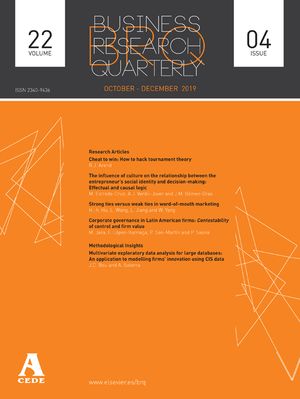El objetivo de este trabajo consiste en contrastar la influencia de la prima pagada sobre el valor que generan las fusiones y adquisiciones (F&As) bancarias. Para ello, realizamos un estudio de eventos y un análisis de regresión sobre los rendimientos anormales obtenidos para una muestra de F&As bancarias europeas realizadas entre 1995 y 2004. Los resultados muestran una influencia negativa de la prima sobre los rendimientos anormales tanto para el adquirente como para la entidad resultante de la operación. Asimismo, el pago con acciones unido a una elevada prima podría ser una señal de elevada sobrevaloración.
The purpose of this paper is to test the influence of the paid premium on the value that bank M&A generate. We performed an event study on abnormal returns and a regression analysis in a sample comprised of mergers and acquisitions undertaken by European banks from 1995 to 2004. The results obtained show a negative influence of the premium on abnormal returns obtained by the stockholders for both the purchaser as well as the organisation resulting from the operation. Moreover, the payment with shares of stock in conjunction with a high premium could be a sign of high overvaluation.
Una versión preliminar de este trabajo fue galardonada con el premio Sanchís Alcover concedido por la Asociación Científica de Economía y Dirección de Empresas en su XVI congreso nacional celebrado en Valencia del 10 al 12 de septiembre de 2006.




